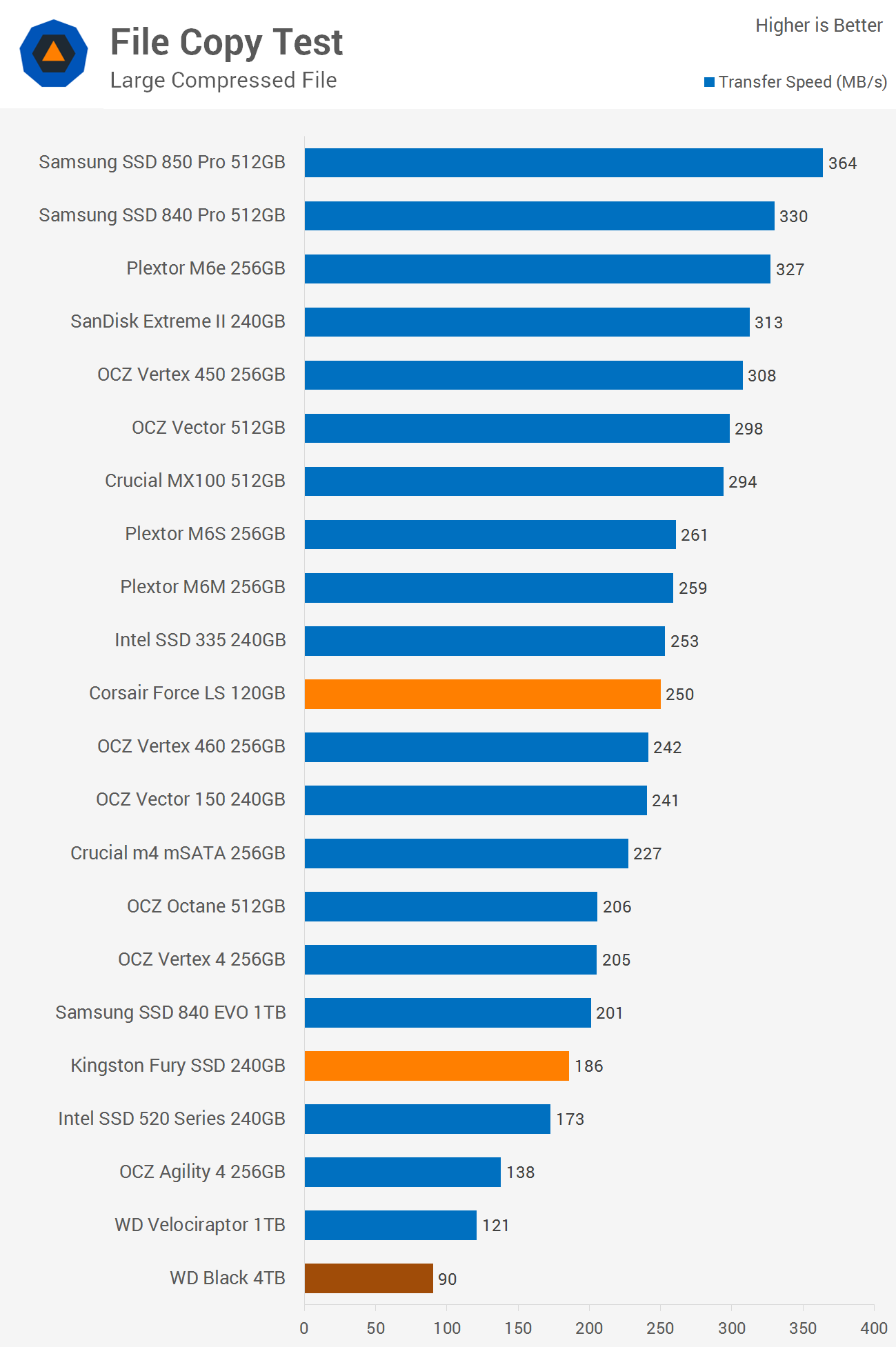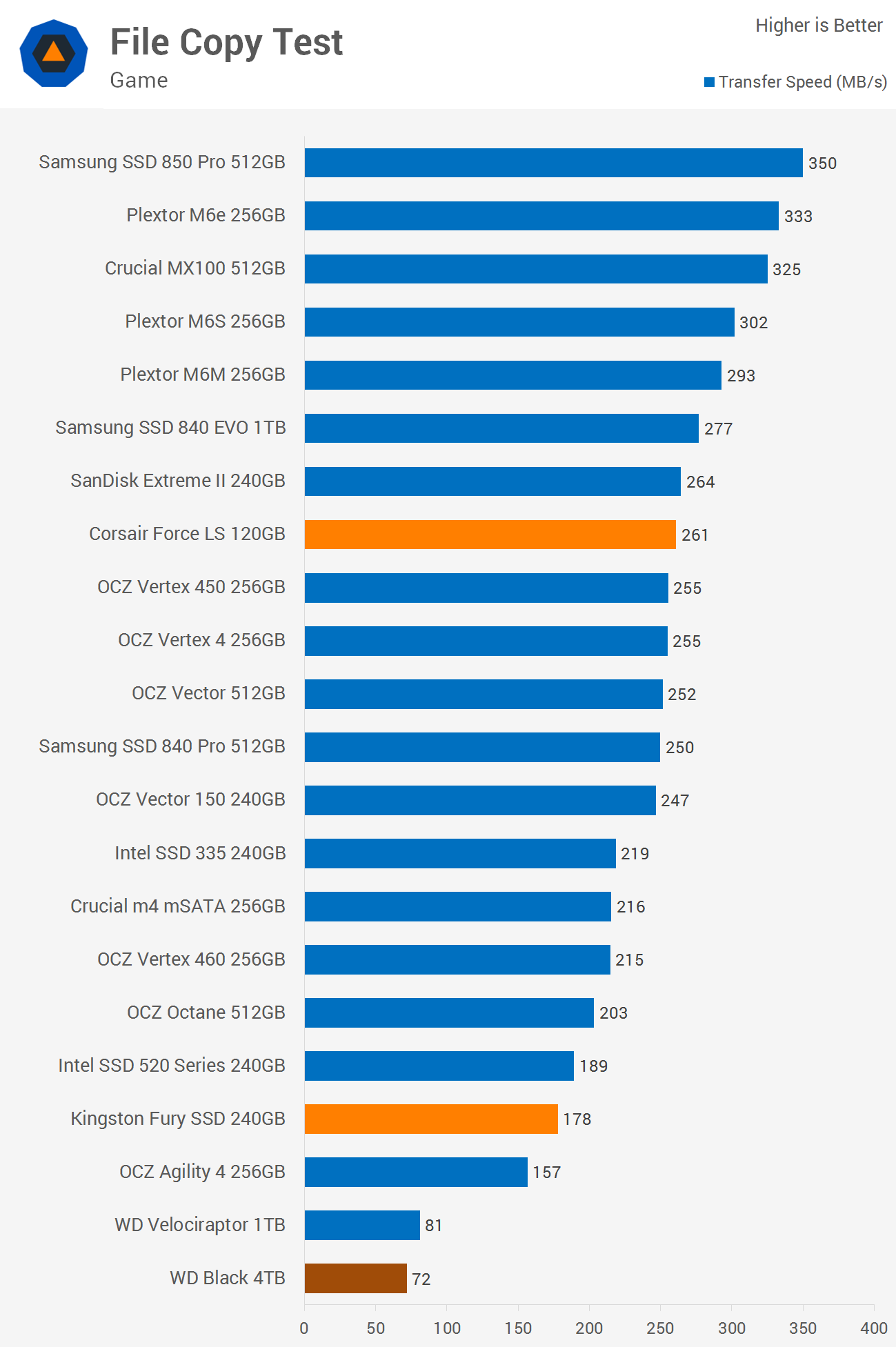SSD Storage Performance
Before we finish up the benchmarking phase, let's have a quick look at the performance of the Corsair Force LS 120GB SSD in the ATX system and the Kingston Fury SSD 240GB in the MicroATX system.

When copying a single large compressed file on disk, the Corsair Force LS 120GB was reasonably fast for a budget SSD, sustaining 250MB/s. This is comparable to the OCZ Vertex 460, Intel SSD 335 and Plextor M6S. The Crucial MX100 was faster with 294MB/s, though that was the larger 512GB model so it isn't exactly a fair comparison.
The Kingston Fury SSD 240GB was a bit of a letdown with just 186MB/s, 26% slower than the Corsair Force LS 120GB despite being a larger capacity drive. The Fury SSD 240GB was comparable to the old Intel SSD 520, while it was slower than the Samsung SSD 840 Evo and OCZ Vertex 4.

Although the Corsair Force LS 120GB is toward the bottom of the graph, it still performed reasonably well in our program copy test with 171MB/s, just 30MB/s slower than the majority of the performance SSDs, which will go unnoticed for the most part.
The Kingston Fury SSD 240GB was again disappointing, this time 27% slower than the Corsair Force LS 120GB with a throughput of just 125MB/s.

In our game copy results the Corsair Force LS 120GB is surprisingly fast, particularly for a 120GB SSD. With a throughput of 261MB/s it matched the OCZ Vertex 450, Samsung SSD 840 Pro and SanDisk Extreme II.
The Kingston Fury SSD 240GB continued with sub-par performance, being one of the slowest SSDs we have tested in recent times at 178MB/s.
